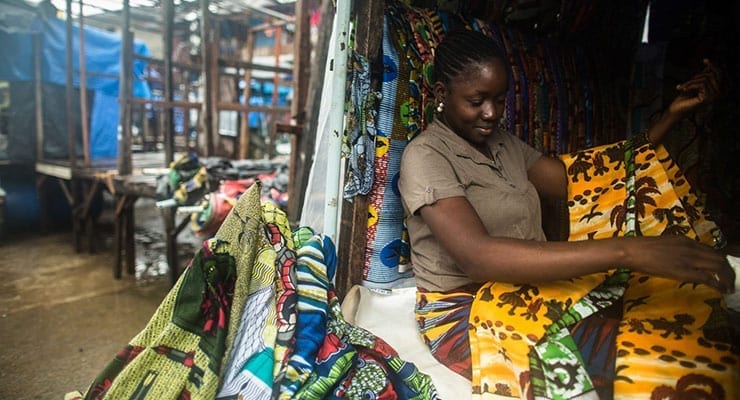The United Nations hosted an International Conference on Ebola Recovery last week at UN Headquarters in New York, seeking to focus world attention on the “final stretch” of the response to the deadly Ebola outbreak in West Africa.
Commenting on the epidemic that has killed more than 11,000 people, UN Secretary-General Ban Ki-moon called for continued solidarity. “Let us collectively take a deep breath and resolve to finish the job,” he said calling for continued generosity in helping put the most affected countries on the path of recovery.
Guinean President Alpho Conde spotlighted the breadth of socio-economic damage caused by the outbreak noting that health systems collapsed, investors and consultants have left the three countries, farms and markets had ceased to function, the trade and travel to and from the region had been compromised, tax revenues declined, and household incomes had been hard hit.
Liberian President Ellen Johnson-Sirleaf, speaking on behalf of Guinea, Sierra Leone and her own country, those hardest hit by last year’s unprecedented outbreak, said that the funding gap for the three countries’ national recover plans and the regional Mano River Union plan is estimated at $7.2 billion, which includes $4 billion for the region as a whole.
“There is no doubt that the resources required are significant,” Ms. Johnson-Sirleaf said. “We believe however that this can be achieved through existing bilateral and multilateral commitments supplemented by the allocation of additional resources.”
While cases in Guinea and Sierra Leone have been reduced considerably, Mr. Ban and other speakers said new cases in Liberia show the need for continued vigilance given the regional risks.
Liberia was mid-way through a 90-day period of heightened surveillance and vigilance, following the completion of 42 days since the burial of the last person infected with Ebola virus disease when the disease resurfaced last month.
In a statement delivered on behalf of the President of the UN General Assembly, María Cristina Perceval, Permanent Representative of Argentina to the UN, said that despite the important progress that has been made, the final push to reach a resilient “zero case” scenario will require the sustained engagement of all partners, and even scaled up efforts in some areas.
“To successfully end the crisis, recovery efforts must shift from the immediate emergency response, to a long-term approach to ‘build back better’ and ensure greater resilience to potential future shocks.” She said, adding that as a community of nations, the world must approach these efforts with the same sense of urgency and commitment that was displayed at the outset of the Ebola epidemic.
Mr. Ban said the outbreak has eroded progress on peace and development, disrupted health and social services, and affected major economic sectors such as agriculture, mining, trade, tourism, transport, fisheries and livestock. The functioning of schools, hospitals and other public infrastructure has suffered.
“This negative impact – on economies, livelihoods and more importantly lives – demands that the global community continues to prioritize recovery from Ebola even long after the crisis subsides,” he said.
As a follow-up to this conference, the African Union will convene an International Conference on Africa’s Fight against Ebola later this month in Malabo, Equatorial Guinea.
Source: UN News Centre, adapted.


